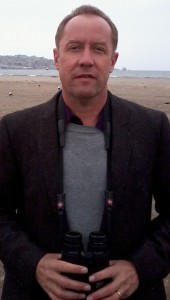IRES Seminar Series
Time: 12:30-1:30 pm
Location: AERL Theatre (room 120), 2202 Main Mall
Dr. Hugh Possingham will be receiving an Honorary Doctorate from UBC during the November 2015 graduation convocation.
Proper problem formulation for conservation management and policy
Abstract:
I will explore some problems in conservation management and policy and show how the key to success is in formulating the problem.
We will look at issues that include: species triage, spatial prioritisation, optimal monitoring and restoration vs protection.
Bio:
Professor Hugh Possingham FAA BSc (Adelaide) DPhil (Oxford)
http://www.possinghamlab.org/ – http://en.wikipedia.org/wiki/Hugh_Possingham
Professor of Mathematics and Professor of Ecology, The University of Queensland
Professor of Conservation Decisions, Imperial College London 2013-18
Australian Research Council Laureate Fellow 2014-18
Director of The Australian Research Council Centre of Excellence for Environmental Decisions http://ceed.edu.au/ 2011-18
Director of The National Environmental Science Program hub for Threatened Species: 2015-20
Aside from his day job, Hugh has a variety of broader public roles advising policy makers and managers by sitting on 11 committees and boards outside the University including: The Wentworth Group of Concerned Scientists (founding member), Founding Editor of Conservation Letters (an international scientific journal), Queensland Rhodes Scholars selection committee and several Environmental NGO scientific advisory committees. He and Dr Barry Traill wrote “The Brigalow Declaration”, used by Premier Beattie to stop land clearing in Queensland thereby stopping 10% of Australia’s greenhouse gas emissions and saving an area the size of Portugal from conversion into farmland.
The Possingham lab developed the most widely used conservation planning software in the world. Marxan www.ecology.uq.edu.au/marxan.htm was used to underpin the rezoning of the Great Barrier Reef and is currently used in over 160 countries by over 5000 users – from the UK and USA to Madagascar and Brazil – to build the world’s marine and terrestrial landscape plans. Most recently Marxan was used to develop the biggest marine reserve system in the world – Australia’s federal marine reserve system. Hugh coauthored two scientific consensus statements that supported Australia’s new marine reserve system, that is a quarter the size of Europe. Many governments and ENGOs use his lab’s work for the allocation of funding to threatened species recovery and solving other conservation conundrums. He is an advocate of wise decision-making and an informal advisor to several governments.
Possingham has coauthored 499 refereed publications covered by the Web of Science (27 in Science, Nature or PNAS) and has more than 15,500 Web of Science citations (h=66). A Google Scholar profile can be found at http://scholar.google.com.au/citations?user=9-veEp8AAAAJ&hl=en. He currently directs two research centres, $20 and $60 million, and he has supervised (or is supervising) 56 PhD students and 43 postdoctoral fellows.
He has one known psychological disorder, a compulsive desire to watch birds.
